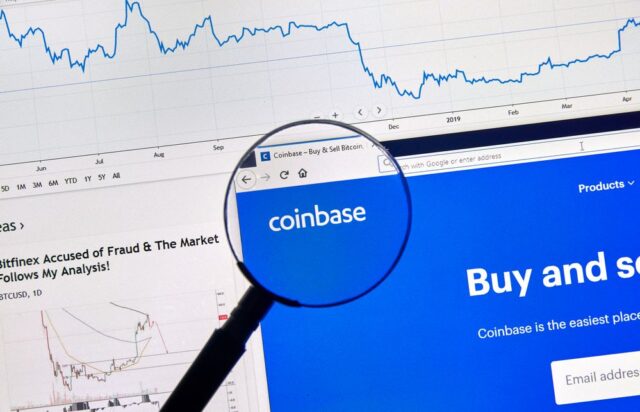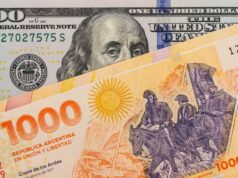Coinbase has launched a token-sales platform that lets users request allocations for new digital assets before they list on the exchange. The first offering features the Monad (MON) token. It marks the first major effort by a U.S.-regulated exchange to reopen public token sales for ordinary investors since the 2018 crackdown on unregistered offerings.
A Short History: What Disappeared After 2018
During the 2017–2018 ICO boom, thousands of crypto projects raised funds directly from the public. Most sales occurred without registration or oversight. After regulators intervened, exchanges stopped hosting those sales. As a result, U.S. retail investors lost access to early-stage token launches. Fundraising continued overseas, but participation was limited to private rounds and accredited buyers. Coinbase now aims to restore retail access within a regulated framework rather than revive the chaos of the ICO era.
How Coinbase’s Token-Sales Platform Works
Each sale on the Coinbase token-sales platform runs for a one-week request window. Users commit USDC, and when the window closes an algorithmic allocation system distributes tokens from smaller requests upward. The method favors broader participation instead of size or speed. Coinbase plans about one sale every month under its Coinbase token sales program. Each asset launched through the program will later appear on the Coinbase listings roadmap.
Guardrails to Limit Speculation
To discourage fast flips, Coinbase applies anti-flip rules that reduce allocation priority for traders who sell their tokens within 30 days. Project teams also face a six-month issuer lockup on secondary or over-the-counter sales unless Coinbase explicitly approves them. Issuers must publish tokenomics, team details, and supply data. Coinbase reviews every sale before listing to ensure transparency and compliance. These steps are designed to prevent the hype cycles that defined earlier token launches.
The Monad Token Sale
The debut sale features Monad, a high-performance layer-1 network backed by Paradigm and Coinbase Ventures. According to project documentation, up to 7.5 billion MON (about 7.5 percent of the initial supply) will be sold at $0.025 per token. Distribution will align with the project’s mainnet launch. Some reports initially misnamed “Monad” as the new platform. In fact, Coinbase Token Sales is the platform, and Monad is simply the first project offered.
Why Coinbase Is Moving Upstream
By running new sales directly, Coinbase is expanding upstream into primary token offerings. Until now, the company focused mainly on listings and secondary trading. This shift builds on its Echo acquisition, which added public-sale infrastructure later folded into the platform. The strategy could diversify revenue and deepen issuer relationships. However, it also places Coinbase inside a regulatory gray area that still draws close scrutiny.
Access—But Still Restricted
Coinbase describes the rollout as the broadest U.S. retail crypto access to token launches in years. Even so, participation remains limited to “select jurisdictions.” Eligibility will vary by region, and each sale includes its own compliance disclosures. In practice, Coinbase is not reviving the ICO model. Rather, it is testing a regulated channel for public participation under controlled conditions.
>>> Read more: PancakeSwap CakePad Launch Lifts CAKE Price Despite X Hack
What to Watch Next
The coming months will show whether Coinbase can maintain compliance while scaling its Coinbase token sales cadence. Observers will watch how the allocation algorithm handles demand and how liquidity behaves after listings. It will also matter whether anti-flip rules encourage long-term holders. If the Monad token sale proceeds smoothly, Coinbase’s model could become a blueprint for future exchange-run primary markets in the United States and strengthen the case for continued Coinbase token sales on a monthly rhythm.
Readers’ frequently asked questions
Are Coinbase token sales available in all U.S. states?
Not yet. Coinbase token sales are accessible only in jurisdictions where Coinbase holds the necessary regulatory approvals. Certain U.S. states still restrict token sales under securities or money-transmission laws. Each sale page specifies the regions where participation is permitted.
How does Coinbase ensure token listings comply with U.S. regulations?
Before any sale, Coinbase’s compliance and legal teams review the token’s structure, issuer disclosures, and lockup arrangements. Tokens cleared for sale appear on the Coinbase listings roadmap and undergo further review before trading begins on the exchange.
What happens if a token fails to meet listing or regulatory conditions after the sale?
If a project fails to meet Coinbase’s or regulators’ post-sale conditions, the exchange can postpone or cancel the listing. In such cases, buyers receive refunds in USDC, as stated in Coinbase’s token-sale terms.
What Is In It For You? Action items you might want to consider
Check eligibility and KYC early
Confirm that your location is supported and your account is verified. Since sales are jurisdiction-dependent and time-boxed, resolving KYC issues in advance helps secure an allocation.
Prepare USDC and a funding plan
Allocations are requested in USDC. Decide on a maximum commitment per sale and avoid over-allocating; the algorithm favors smaller requests to broaden participation.
Review issuer disclosures and lockups
Read the project’s tokenomics, supply schedule, and lockup terms. Note that issuers face a six-month restriction and that buyers who flip quickly may be de-prioritized in future sales.











[…] >>> Read more: Coinbase Token Sales Platform Launches Under U.S. Rules […]